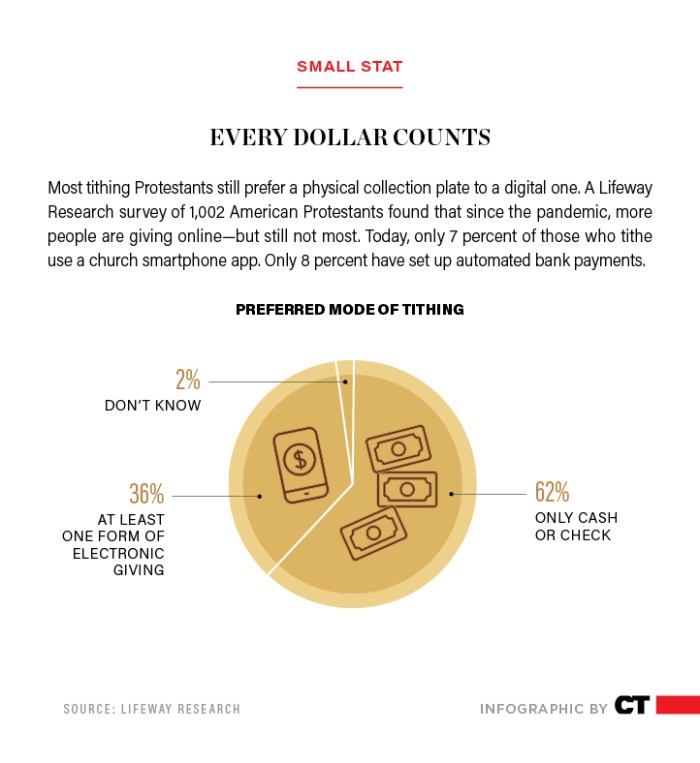A Bible containing a rare record of Christian opposition to slavery is going on display for the first time in the South Carolina State Museum in Columbia. The Bible once belonged to William Turpin, who with his business partner Thomas Wadsworth bought human beings in the late 1700s. The men then became convinced slavery was immoral and freed them. Turpin recorded the names of 31 people freed from their enslavement in his Bible.
CMA sees small split over women in ministry
At least eight congregations have left the Christian and Missionary Alliance (CMA) over women in ministry. In June, after several years of discussion, the denomination decided that women may be ordained and carry the title “pastor” at the discretion of local churches, while eldership, which includes the lead pastor, will remain exclusive to men. According to the CMA, the new position recognizes that people who are equally committed to the authority of Scripture interpret key passages about women in church roles differently. But some of those leaving say it is “a significant step toward egalitarianism.” The departing churches have not indicated whether they will form a new denomination.
Canada: Court won’t hear churches’ COVID-19 case
The Supreme Court of Canada declined to hear an argument by a group of British Columbia churches that COVID-19 restrictions violated their constitutional rights. A lower court ruled the pandemic restrictions may have violated Charter rights but were nonetheless permissible as the government had to balance those protections with the legal mandate of the provincial health department. The lower court also noted the restrictions were time-limited, setting-specific, and following the best available scientific advice. Similar legal challenges have been dismissed in other provinces as well.
Haiti: Church members die while attacking gangs
Seven evangelicals died in a confrontation with the gangs that have taken over most of Haiti’s capital, Port-au-Prince. Pastor Marcorel Zidor reportedly told members of his church that their faith would make them bulletproof. Church members marched with sticks and machetes and attacked the armed gangs. Haiti has been in crisis since its president was assassinated in 2021.
United Kingdom: “Wycliffe’s Oak” up for tree award
An old oak believed to have once shaded Reformer John Wycliffe as he preached in Surrey, England, was nominated for a conservation charity’s tree-of-the-year competition. The tree is about 800 years old, and its trunk measures nearly 24 feet around. Wycliffe is said to have preached under it in 1370. The Baptist Charles Spurgeon preached beneath it in 1872.
Switzerland: WEA criticized for meeting with Iranians
The World Evangelical Alliance (WEA) accepted a controversial invitation to an Iran-hosted forum on religion and human rights. The country ranks eighth on Open Doors’ persecution watch list, and some evangelicals sharply criticized the WEA for agreeing to meet with Iranians. Johnnie Moore, who previously served on the US Commission on International Religious Freedom, said the WEA is “becoming part of the problem,” and the head of Iran Alive Ministries said the organization was dangerously naïve. WEA’s secretary general Thomas Schirrmacher defended the meeting, however. He argued it is good for Christians to be seen as conversation partners by countries that usually regard them only as troublemakers. “They asked us to explain: What can evangelicals contribute to the good of society?” he said. “I would have a bad conscience if we did not use such opportunities to testify in the court of the world.” Iranian officials arrested 134 Christians last year, according to the best available records. Nearly 50 were tortured.
Rwanda: Bible price increases
The Bible Society of Rwanda has raised the price of Bibles by about 200 percent after seeing donations drop sharply. Antoine Kambanda, the Catholic cardinal who heads the multidenominational organization, said the Bible society had become too dependent on foreign funds, relying on Christians outside of the country to cover about 85 percent of publication expenses. “It is high time Rwandans begin to contribute to that work of publishing the Scriptures,” he said. The organization now sells Bibles for around 8,000 Rwandan francs (the equivalent of about $7 USD).
China: Church growth stagnant, study finds
The growth of Christianity has stalled in China, according to a new Pew Research Center study of Chinese academic and government surveys. Depending on the wording of the survey question, between 2 and 3 percent of adults said they are Christian. That correlates to about 18 million Protestants. While churches are seeing new converts, many Christians also leave the faith. In a four-year period, researchers found that roughly one-quarter of believers stopped identifying as Christian. The most recent data Pew evaluated is from 2018.
Japan: Missionaries get new title
A3, an evangelical organization that started in the 1960s with short-term missionaries teaching English in Japan, has decided it will no longer use the word missionary. Christians sent to work in cross-cultural contexts will now be called “missional partners.” A3, formerly known as Asian Access, has been led by Japanese Christians since 2022. They decided missionary seemed too Western. Other Christians who do cross-cultural ministry have also argued the word is not biblical and has lost its usefulness, even preventing people from answering a call to missions. Today, A3 sends people to 18 Asian countries, as well as the Middle East and Central America, to form learning cohorts that develop Christian leaders.
 The winds of change are not blowing gently at Regent University in Virginia Beach. In July, the board of trustees named a new president and an interim law-school dean. Some students and alumni say those changes signal a disturbing philosophical shift away from Regent’s conservative moorings. Students are also crying foul over the manner in which the former law-school dean, Herbert Titus, was removed.Student leaders claim Titus’s removal violated the school’s policy on tenure and that it will upset the ratio between students and faculty. For those reasons, some fear the law school will be unable to gain full accreditation with the American Bar Association (ABA). The school currently has provisional ABA accreditation.Regent University policy requires faculty contract renewal unless the faculty member has breached that contract, says student council member Norm Sabin. “[Breach of contract] has not been put forth or even alleged in the situation with Dean Titus.”“The events and the way they were brought about … shed some doubt on whether the tenure system as represented was really there,” Sabin says. “Without tenure we cannot get ABA approval.” Further, he says, replacing Titus with faculty member Paul Morken helps bring the student-to-faculty ratio to a level the ABA considers “unacceptable.”Titus holds a conservative approach to constitutional law that Sabin characterizes as “very much textually oriented.” Some speculate he was removed in an effort to tone down the school’s conservative emphasis. Trustees have not explained their reasons, saying only that before his dismissal Titus was offered a paid sabbatical and a professorship, which he rejected.In an interview with CT, new president Terry Lindvall declined to explain why Titus was removed, indicating that litigation is pending. Lindvall says that Regent is “still very much committed to accreditation,” and administrators are “adjusting” to the upset student-to-faculty ratio. “We’ve got some professors who are teaching more than what’s really healthy, but at the same time it is not endangering the quality of education.”Titus’s removal is not the only personnel change making waves. Several alumni and students believe Lindvall’s appointment is another indication of a philosophical move to the Left.Says Tom Blackstone, Regent alumni association president, “Our primary concern is … to avoid institutional drift and what we call the ‘Duke-Harvard syndrome,’ whereby schools that began with a godly base within generations became secular humanist bastions in the areas of the liberal arts.”Lindvall, a communications professor and film producer, says Regent is going through “growth pains,” and that his first priority is to “bring reconciliation to the whole community.”“Regent has been almost sectarian and provincial in its first 15 years,” says Lindvall. He wants to stress Christian scholarship and women and minority enrollment.By Thomas S. Giles.
The winds of change are not blowing gently at Regent University in Virginia Beach. In July, the board of trustees named a new president and an interim law-school dean. Some students and alumni say those changes signal a disturbing philosophical shift away from Regent’s conservative moorings. Students are also crying foul over the manner in which the former law-school dean, Herbert Titus, was removed.Student leaders claim Titus’s removal violated the school’s policy on tenure and that it will upset the ratio between students and faculty. For those reasons, some fear the law school will be unable to gain full accreditation with the American Bar Association (ABA). The school currently has provisional ABA accreditation.Regent University policy requires faculty contract renewal unless the faculty member has breached that contract, says student council member Norm Sabin. “[Breach of contract] has not been put forth or even alleged in the situation with Dean Titus.”“The events and the way they were brought about … shed some doubt on whether the tenure system as represented was really there,” Sabin says. “Without tenure we cannot get ABA approval.” Further, he says, replacing Titus with faculty member Paul Morken helps bring the student-to-faculty ratio to a level the ABA considers “unacceptable.”Titus holds a conservative approach to constitutional law that Sabin characterizes as “very much textually oriented.” Some speculate he was removed in an effort to tone down the school’s conservative emphasis. Trustees have not explained their reasons, saying only that before his dismissal Titus was offered a paid sabbatical and a professorship, which he rejected.In an interview with CT, new president Terry Lindvall declined to explain why Titus was removed, indicating that litigation is pending. Lindvall says that Regent is “still very much committed to accreditation,” and administrators are “adjusting” to the upset student-to-faculty ratio. “We’ve got some professors who are teaching more than what’s really healthy, but at the same time it is not endangering the quality of education.”Titus’s removal is not the only personnel change making waves. Several alumni and students believe Lindvall’s appointment is another indication of a philosophical move to the Left.Says Tom Blackstone, Regent alumni association president, “Our primary concern is … to avoid institutional drift and what we call the ‘Duke-Harvard syndrome,’ whereby schools that began with a godly base within generations became secular humanist bastions in the areas of the liberal arts.”Lindvall, a communications professor and film producer, says Regent is going through “growth pains,” and that his first priority is to “bring reconciliation to the whole community.”“Regent has been almost sectarian and provincial in its first 15 years,” says Lindvall. He wants to stress Christian scholarship and women and minority enrollment.By Thomas S. Giles.









